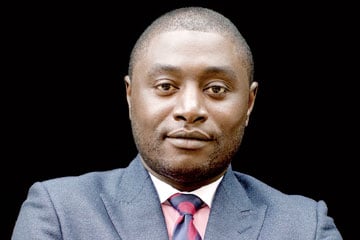
Some Toronto lawyers are voicing their opposition to a plan by the province to reduce the number of councillors elected in the City of Toronto.

Some Toronto lawyers are voicing their opposition to a plan by the province to reduce the number of councillors elected in the City of Toronto.
Rocco Achampong, a former student president of the University of Toronto who has been in private practice in Toronto since 2010, is against the new Ontario premier’s plan to cut the number of city councillors in Toronto in half on the eve of a municipal election.
Under Bill 5, which the new Conservative government tabled July 30 at Queen’s Park, the number of councillors would be reduced to 25. The controversial bill has been met with widespread opposition and anger. Last week, Achampong filed a court action to try and derail Ford’s plan.
“This is government by fiat,” says Achampong, a former mayoral candidate who finished sixth in the city’s last mayoral race, well behind winner Rob Ford. “This is not a publicity stunt. These are live issues. I’m standing up for the people of Toronto. I’m a lone-man army.”
Achampong is now running for one of 47 councillor seats in the October election, which officially began on May 1. The City of Toronto is also investigating if a legal challenge is possible, and council will meet on Aug. 20 to get insight from the City of Toronto’s solicitor on “the validity and constitutionality of any Provincial legislation, including its potential violation of the rights of the citizens of Toronto to fair and effective representation, the practicality of conducting the election, the City Clerk’s capacity to implement the changes, and any errors or flaws in the legislation.”
Renatta Austin, lawyer with the Eglinton West Law Office and a candidate for Ward 13, says she supports a legal challenge to the bill by the city.
“In my view, the City of Toronto has a moral obligation to its citizens to take this to court,” she says.
“While there is no doubt in my mind that the province can unilaterally make fundamental changes to municipal governments — and we’ve seen Conservative governments do this before — the so-called Better Local Government Act lacks political legitimacy.”
Within minutes of the bill being tabled last week, Achampong filed a notice of application with Ontario’s Superior Court of Justice, asking the court to review the bill and rule on its legality. According to his application, listing Ford, Ontario’s attorney general and Toronto Mayor John Tory as respondents, Achampong is seeking orders for the “interim preservation of the status quo rules and regulations” governing the 2018 election and to suspend the coming into force of Bill 5 until his application can be heard.
He gives several legal grounds for his application, notably the bill’s non-compliance with the rules and regulations governing candidacies according to both provincial and municipal laws, including the City Toronto Act (2006), the Municipal Act (2001) and the Municipal Elections Act (1996).
“The controlling law, rules and regulations that have been operative since the start of the election cycle have now been thrust into a state of ambiguity and uncertainty,” reads the application.
“Late changes in election rules run the risk of unfairness or, at the very least, the perception of unfairness and, as such, has the effect of diminishing public confidence in the city’s democratic process.”
Toronto criminal lawyer David Butt says he’s happy someone has mounted a legal challenge to Bill 5.
“A constitution does nothing if it doesn’t ensure and protect our shared sense of democracy,” says Butt, who notably served as counsel to the Bellamy Inquiry that examined municipal governance and procurement in Toronto from 2002 to 2005.
Though Butt doesn’t dispute the clearly defined constitutional powers of provinces over municipal governments in their jurisdictions, he says the Ford bill flies in the face of traditional practices and electoral conventions that have become unwritten components of the Canadian Constitution and the notion of it being “a living tree,” which jurisprudence has “solidly endorsed” over many decades.
Wade Poziomka, a partner at Ross & McBride LLP and chairman of the Ontario Bar Association’s constitutional, civil liberties and human rights law section, says that while “it may well [be] within the province’s authority to make the changes proposed by Bill 5, that does not necessarily mean it is a proper exercise of their power in a democracy.
“As far as I am aware, Premier Ford did not mention such a drastic and consequential change in his election platform and the steps taken recently in terms of Bill 5 should be very concerning to Ontarians,” he says. “This will ultimately dilute access to political representation for Ontarians, because there will less representatives for the same number of people. While I do not see this as an illegal move, I do see it as an anti-democratic one.”
— with files from Gabrielle Giroday